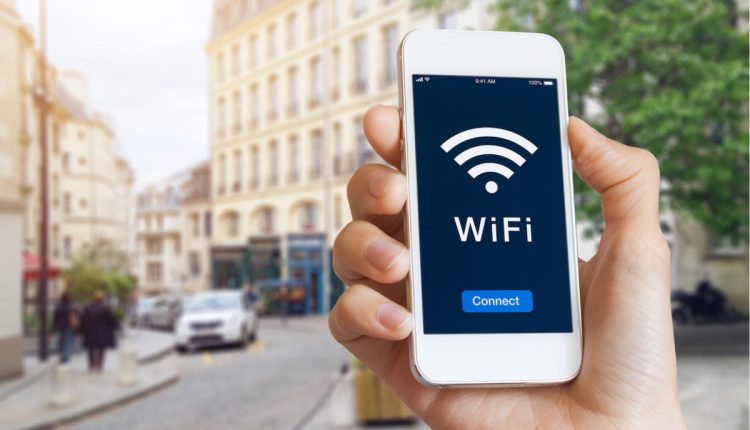Staying Safe on Public Wi-Fi
In today’s hyper-connected world, Public Wi-Fi has become a ubiquitous amenity. Whether we’re sipping coffee at a local café or waiting at the airport, free Wi-Fi access tempts us to connect and browse the internet without using up our mobile data. While Public Wi-Fi is undeniably convenient, it comes with its fair share of risks. In this article, we’ll explore the potential dangers of Public Wi-Fi and learn how to stay safe while using it.
Risks of Using Public Wi-Fi
Public Wi-Fi networks are often unsecured, making them a playground for cybercriminals. When you connect to an unsecured Wi-Fi network, hackers and malicious actors can easily intercept the data you send and receive. This could include personal information, login credentials, and sensitive financial data. Therefore, it’s crucial to understand the risks and take necessary precautions.
Common Threats on Public Wi-Fi
One of the most common threats on Public Wi-Fi is the Man-in-the-Middle (MITM) attack. In this type of attack, a cybercriminal positions themselves between your device and the Wi-Fi hotspot, intercepting and even altering the data transmitted. Another threat is Wi-Fi sniffing, where hackers use specialized tools to capture data packets from the network, giving them access to unencrypted information.
Ways to Protect Yourself
To safeguard your data and privacy on Public Wi-Fi, consider using a Virtual Private Network (VPN). Using a VPN encrypts your internet connection, making it highly challenging for anyone to intercept your data. Additionally, keep your devices updated with the latest software and app versions, as updates often include security patches to protect against potential vulnerabilities. Enabling two-factor authentication adds an extra layer of security to your online accounts, making them harder to compromise.
Browsing Best Practices
When using public Wi-Fi, exercise caution regarding the websites you visit. Stick to secure websites that use HTTPS encryption, as indicated by the padlock icon in the browser’s address bar. Avoid accessing sensitive information, such as online banking or private emails, while connected to Public Wi-Fi. Save these activities for when you’re on a secure and trusted network.
Public Wi-Fi Etiquette
While staying safe on Public Wi-Fi is essential, we should also consider good internet etiquette. Public Wi-Fi is shared among multiple users, and excessive bandwidth usage can slow down the network for everyone. Avoid streaming high-definition videos or downloading large files that could impact the overall network performance. Furthermore, refrain from engaging in illegal activities or accessing inappropriate content while using Public Wi-Fi.
Alternative Internet Options
In situations where Public Wi-Fi is risky or unavailable, explore other secure methods of internet access. Personal hotspots using mobile data or dedicated mobile Wi-Fi devices offer a safer alternative, as they provide a private and encrypted connection.
Conclusion
Public Wi-Fi has revolutionized the way we access the internet on the go, but it’s essential to be aware of the potential risks. By following the tips mentioned in this article, you can significantly reduce the chances of falling victim to cyber threats while using Public Wi-Fi. Remember to use a VPN, update your devices regularly, and practice safe browsing habits.
FAQs (Frequently Asked Questions)
- Is it safe to use Public Wi-Fi with a VPN?
- Yes, using a VPN adds a layer of encryption to your connection, making it safe to use Public Wi-Fi.
- What is the best VPN for Public Wi-Fi?
- There are several reputable VPN providers. Look for ones that offer strong encryption and have a no-logs policy.
- Can I use Public Wi-Fi for online banking?
- It’s generally not recommended to perform sensitive activities like online banking on Public Wi-Fi due to security risks.
- How can I determine if a website is safe and secure?
- Look for the padlock icon and “HTTPS” in the website’s address bar, indicating a secure connection.
- What should I do if I suspect a Wi-Fi network is compromised?
- Disconnect immediately and avoid using the network. Report the issue to the network owner or the establishment providing the Wi-Fi.
We hope this article has empowered you with the knowledge to stay safe while using Public Wi-Fi. Remember, taking the necessary precautions can make all the difference in protecting your sensitive information and ensuring a secure online experience. Stay vigilant and enjoy the convenience of staying connected on the go!
[Disclaimer: This article is for informational purposes only. Readers should exercise their own judgment and follow best security practices while using Public Wi-Fi.]

